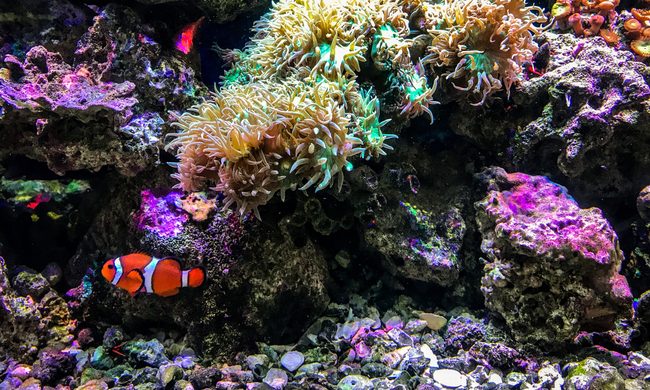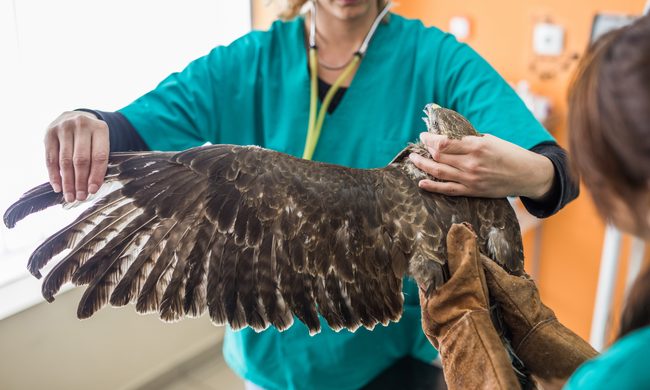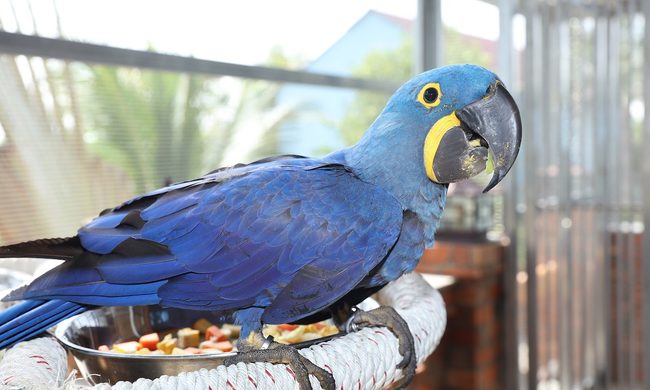When your child is ready to cuddle something other than their stuffed animal collection, it might be time to add a pet to the family. Small animals are perfect options for your kids. Many of them make great cuddly pets for your family, especially when parents are committed to their basic care.
Studies show that pet ownership is good for people, especially children. It helps them become empathetic, increases immunity, boosts self-esteem, and improves social skills. Here are a few of the best small pets for kids that deliver big on affection and companionship.
The best small pets for kids
Dogs
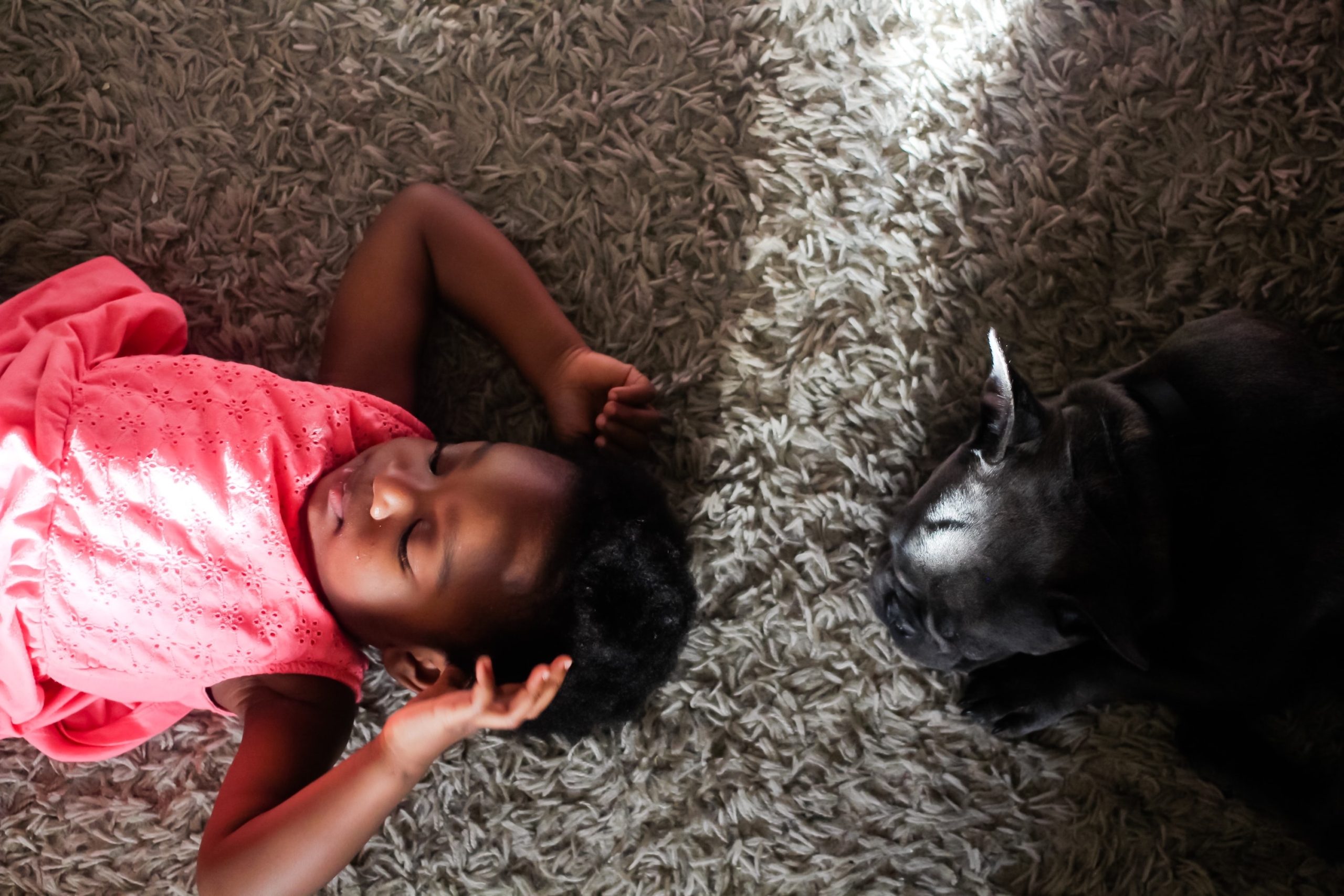
Dogs are naturally cuddly. When they curl up next to you, they provide warmth and oxytocin, a chemical that makes them feel good and produces feelings of connection, bonding, and trust. The good news? Humans experience the same chemical reaction.
Kids between the ages of 5 to 10 are the right age for dog ownership, as long as they aren’t solely responsible for its care. Smaller varieties that interact well with children include the Maltese, pug, Brussels Griffon, and Cavalier King Charles Spaniel.
Depending on what you’re looking for, there are a variety of dogs you can rescue from your local shelter. Adoption fees range anywhere from $50 to $150. Expect to pay more for a purebred dog from a local breeder. Annually, plan to spend approximately $1,500 for food, toys, treats, annual checkups, and grooming.
In addition to food and water, dogs need daily exercise and playtime. Just like their human owners, they also require an annual checkup and vaccinations from a licensed veterinarian.
Cats
Cats snuggle for safety and protection as well as for warmth and affection. Research shows that a purring cat is medically therapeutic. The sound they emit lowers blood pressure, reduces anxiety, and can actually aid in the healing of infections, bones, and muscles.
Kittens do well in households where children are 6 years of age or older. If your child is younger, consider adopting a cat that is at least 2 or 3 years old. A few breeds that play well with children include the Birman, Burmese, Maine Coon, and Ragdoll.
Like their canine friends, there are a multitude of cats to adopt at your local shelter. Adoption fees typically range between $20 to $200 for cats 1 year or older. Otherwise, expect to pay between $300 to $1,200 for a purebred cat from a local breeder. Annually, your cat’s food, kitty litter, toys, treats, and annual checkups will cost between $800 to $1,000.
Unlike dogs, cats don’t require a daily walk; however, it’s best to spend some time playing and grooming your cat every day if you want them to bond with the family. Besides daily food and water, their litter box should be cleaned frequently. Annual checkups and vaccinations are important, too.
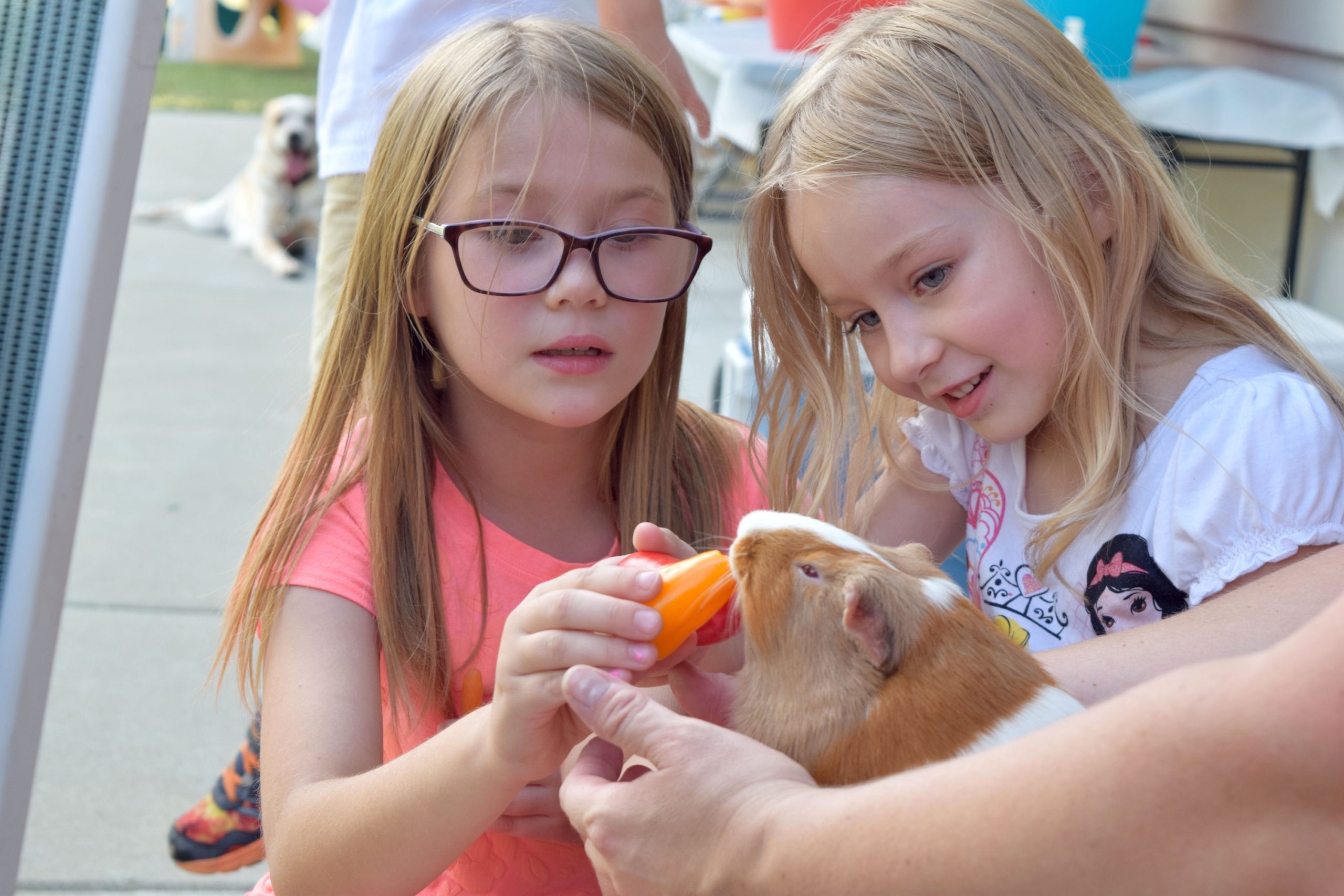
Guinea pigs
If you’re not interested in owning a dog or cat, your family might enjoy owning a guinea pig. These docile creatures are happiest in pairs and easy to tame when treated gently.
Because trained guinea pigs are so social, they bond with their human companions quickly, provided they are treated with love and respect. These animals are great with kids as young as 3 with adult supervision. Parents should expect to be the primary caregiver until the child is at least 9 years old.
Guinea pigs are often available for adoption at pet shelters or rescue organizations for as little as $25, so check these organizations first. If none are available, you’ll pay between $10 and $40 for each one at the pet store.
Plan to purchase a large cage for your guinea pigs as they appreciate the freedom to frolic. A cage that is at least 10.5 square feet is ideal. They enjoy a diet of fresh greens, vegetables and fruits, special guinea pig pellets, and clean water.
Rabbits
If your children are generally quiet and calm, your family may enjoy having a rabbit as a pet. These docile creatures do bond with their humans but are typically skittish and frightened by loud noise and fast movement. As long as there is adult supervision, these animals will make great pets for your family.
Although most rabbits do not enjoy being held high off the ground or carried, they do enjoy sitting on your lap to be stroked. Experts say rabbits do well in homes where the child is at least 10 years old and able to understand how to handle and care for the bunny.
You can expect to pay between $20 to $50 from the humane shelter or a rescue organization and $20 to $100 at the pet store. Expect to pay around $400 to get set up, then $85 a month for food, bedding, and litter. Additional incidental fees include veterinarian bills and toys.
Rabbits live in a large bunny cage and eat fresh hay, vegetables, fiber-rich pellets, and need fresh water daily. You should also set up a small litter box near their food and water. If you’d like to learn more before getting a domestic rabbit, we’ve got you covered. Check out our guide on the lifespan of a pet rabbit.
Ferrets
If you don’t mind having a higher-maintenance pet, a ferret might be an ideal choice for your family. Inquisitive, friendly, and intelligent, these members of the weasel family are actually quite affectionate and provide great companionship.
Ferrets need daily interaction and can be mischievous if not monitored closely. For these reasons, they do best in homes with children older than 8.
Adoption costs for rescuing a ferret range from $75 to $150. Expect to pay between $100 to $300 from a pet store or breeder and anywhere from $400 to $900 to purchase everything you’ll need — cage, food, litter, bedding, and veterinary costs — to care for it. Annual veterinary costs begin at $80 and monthly food and supplies average $55.
Ferrets live comfortably in a wire mesh cage (recommended 24×24 inches) and love to sleep in hammocks.. Because these active animals need daily exercise, ferret proof your home so they can explore, and purchase a collar and leash so you can take them outside for a walk. They eat ferret pellets and enjoy soft chicken or lamb kitten treats on occasion. Always make sure they have fresh water, and clean their cage daily. Due to its musky odor, you’ll want to bathe your ferret monthly.
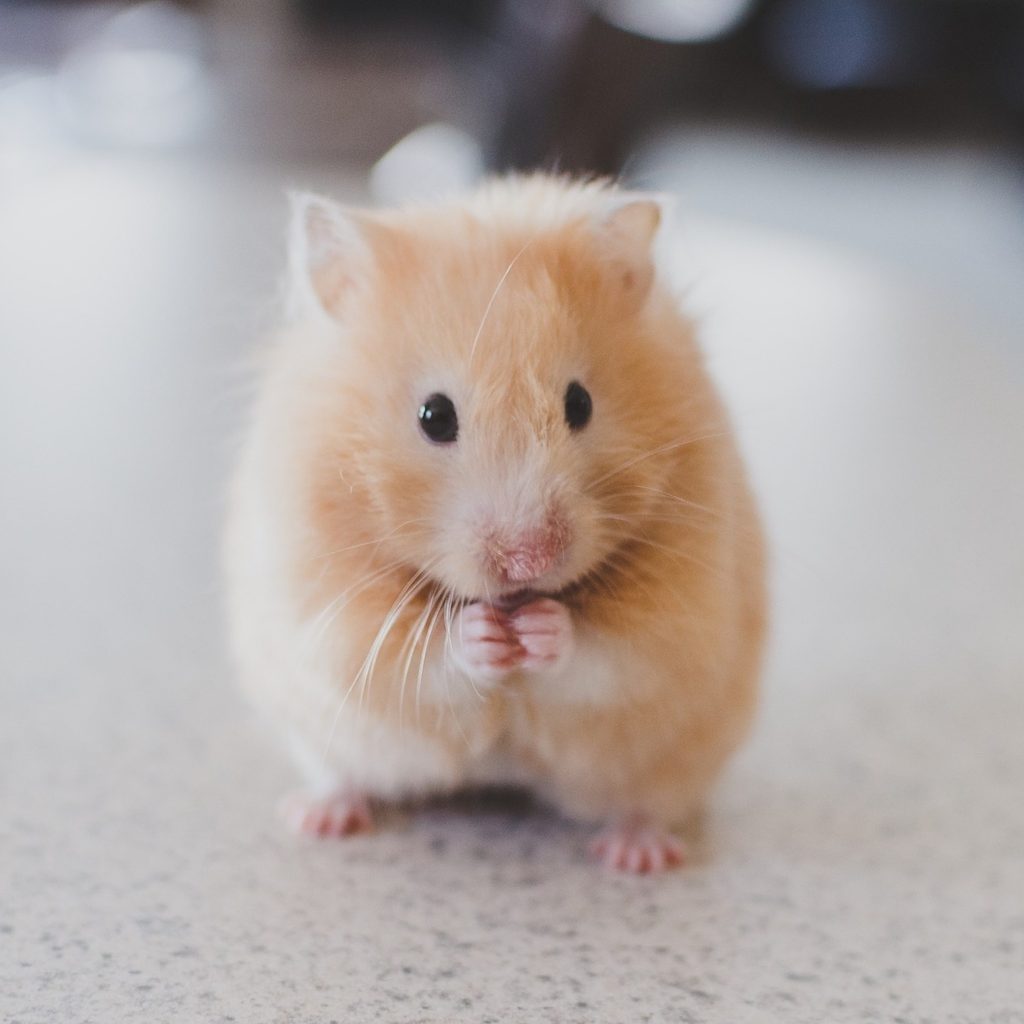
Hamsters
These small rodents are a popular option for a child’s first pet. Hamsters should have a cage with tunnels and places for them to hide in or under. They live on average about three years, so your child will likely learn to deal with grief with these animals. Hamsters are easy to care for — just feed them daily and clean their cages regularly. They are good at entertaining themselves but can be handled gently. Larger species of hamsters enjoy being handled more than smaller species, which tend to be more aggressive. These animals are fun to observe, especially while they explore tunnels or roll around in a ball.
Rats
They might not be the cutest animals, but rats are intelligent and friendly. Rats can be taught to do tricks, like retrieving an object from a maze. They especially enjoy being handled, so you can interact with them more often and for longer periods of time than with other rodents. Rats usually live two to three years. They can survive on a diet of exclusively rodent pellets. If your child wants an animal they can play with, a rat is a great choice for their first pet.
Owning a pet is a big responsibility, but the rewards far outweigh the risk when everyone is willing to work together. Together, you can find the best small pet options that match with your family’s personality and lifestyle. With patience and care, your choice of pet will become a treasured part of your family for years to come.

